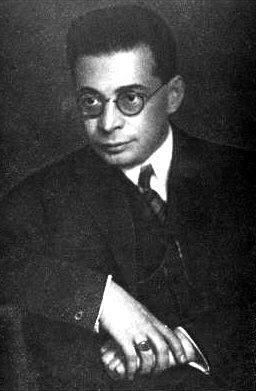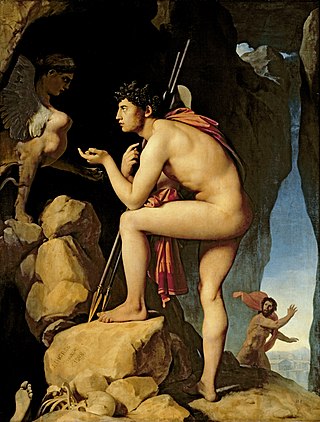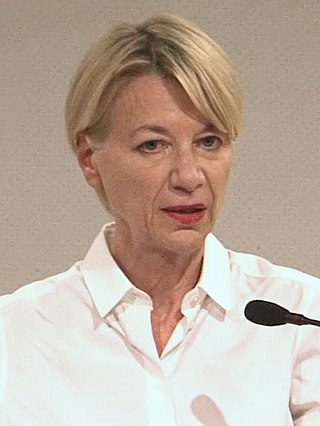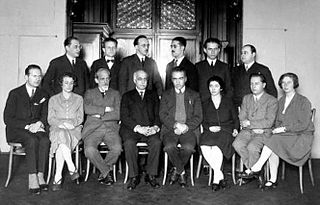Psychoanalysis is a set of theories and therapeutic techniques that deal in part with the unconscious mind, and which together form a method of treatment for mental disorders. The discipline was established in the early 1890s by Austrian neurologist Sigmund Freud, who developed the practice from his theoretical model of personality organization and development, psychoanalytic theory. Freud's work stems partly from the clinical work of Josef Breuer and others. Psychoanalysis was later developed in different directions, mostly by students of Freud, such as Alfred Adler and his collaborator, Carl Gustav Jung, as well as by neo-Freudian thinkers, such as Erich Fromm, Karen Horney, and Harry Stack Sullivan.

Sigmund Freud was an Austrian neurologist and the founder of psychoanalysis, a clinical method for evaluating and treating pathologies explained as originating in conflicts in the psyche, through dialogue between a patient and a psychoanalyst.

Alfred Ernest Jones was a Welsh neurologist and psychoanalyst. A lifelong friend and colleague of Sigmund Freud from their first meeting in 1908, he became his official biographer. Jones was the first English-speaking practitioner of psychoanalysis and became its leading exponent in the English-speaking world. As President of both the International Psychoanalytical Association and the British Psycho-Analytical Society in the 1920s and 1930s, Jones exercised a formative influence in the establishment of their organisations, institutions and publications.

Otto Rank was an Austrian psychoanalyst, writer, and philosopher. Born in Vienna, he was one of Sigmund Freud's closest colleagues for 20 years, a prolific writer on psychoanalytic themes, editor of the two leading analytic journals of the era, managing director of Freud's publishing house, and a creative theorist and therapist. In 1926, Rank left Vienna for Paris and, for the remainder of his life, led a successful career as a lecturer, writer, and therapist in France and the United States.
Psychoanalytic film theory is a school of academic thought that evokes the concepts of psychoanalysts Sigmund Freud and Jacques Lacan. The theory is closely tied to Critical theory, Marxist film theory, and Apparatus theory. The theory is separated into two waves. The first wave occurred in the 1960s and 70s. The second wave became popular in the 1980s and 90s.
Georg Walther Groddeck was a physician and writer regarded as a pioneer of psychosomatic medicine.
Géza Róheim was a Hungarian psychoanalyst and anthropologist.
Léon Wurmser was a Swiss psychoanalyst, Clinical Professor of Psychiatry at West Virginia University and a training and supervising analyst of the New York Freudian Society. He was formerly Professor of Psychiatry and Director of the Alcohol and Drug Abuse Program at University of Maryland, Baltimore.

Michael Joseph Shapiro is an American educator, theorist, and writer. He is a Professor of Political Science at the University of Hawaiʻi at Mānoa. His work is often described as "postdisciplinary," drawing from such diverse fields as political philosophy, critical theory, cultural studies, film theory, international relations theory, literary theory, African American studies, comparative politics, geography, sociology, urban planning, economics, psychoanalysis, crime fiction, genre studies, new musicology, aesthetics and indigenous politics.

Siegfried Bernfeld was an Austrian psychologist and educator who was a native of Lemberg.

Ulrike Ottinger is a German filmmaker and photographer.

The Oedipus complex is an idea in psychoanalytic theory. The complex is an ostensibly universal phase in the life of a young boy in which, to try to immediately satisfy basic desires, he unconsciously wishes to have sex with his mother and disdains his father for having sex and being satisfied before him. Sigmund Freud introduced the idea in The Interpretation of Dreams (1899), and coined the term in his paper A Special Type of Choice of Object made by Men (1910).
Siegfried Zielinski is a German media theorist. He held the chair for Media Theory: Archaeology and Variantology of the Media at Berlin University of the Arts, he is Michel Foucault Professor for Techno-Culture and Media Archaeology at the European Graduate School in Saas Fee, and he is director of the International Vilém-Flusser-Archive at the Berlin University of the Arts. In 2016 until March 2018, he succeeded Peter Sloterdijk as head of the Karlsruhe University of Arts and Design.
Peter J. Loewenberg is a professor of “European cultural, intellectual, German, Austrian and Swiss history, political Psychology, integrating the identities of an historian and political psychologist with the clinical practice of psychoanalysis” at UCLA.

Joan K. Copjec is an American philosopher, theorist, author, feminist, and prominent American Lacanian psychoanalytic theorist. She is Professor of Modern Culture & Media at Brown University.

Harald Julius Alfred Carl-Ludwig Schultz-Hencke was a German psychiatrist and psychotherapist. After an initial introduction to psychoanalysis, with Sandor Rado as psychoanalyst, he was excluded from the German Society of Psychoanalysis because of, among other things, his divergent views on sexuality.

Grete Lehner Bibring (1899–1977) was an Austrian-American psychoanalyst who became the first female full professor at Harvard Medical School in 1961.
Filip Kovačević is a Montenegrin author, human rights activist, and university professor.
Hanne Bergius is a German art historian and Professor for Art History with emphases on art, photography, modern design and architecture.
Liliane Weissberg is an American literary scholar and cultural historian specializing in German-Jewish studies and German and American literature. She is currently the Christopher H. Browne Distinguished Professor in Arts and Sciences and Professor of German and Comparative Literature at the University of Pennsylvania. She received, among others, a Guggenheim Fellowship, the Humboldt Research Award for her research on German-Jewish literature and culture and the Berlin Prize of the American Academy in Berlin, and holds an honorary degree from the University of Graz.








